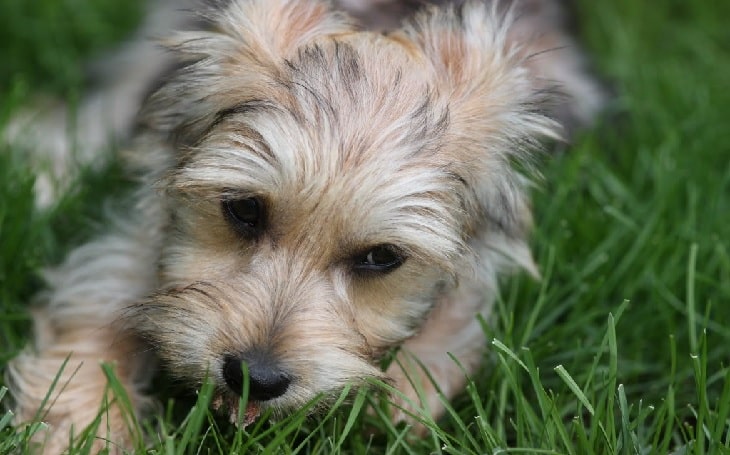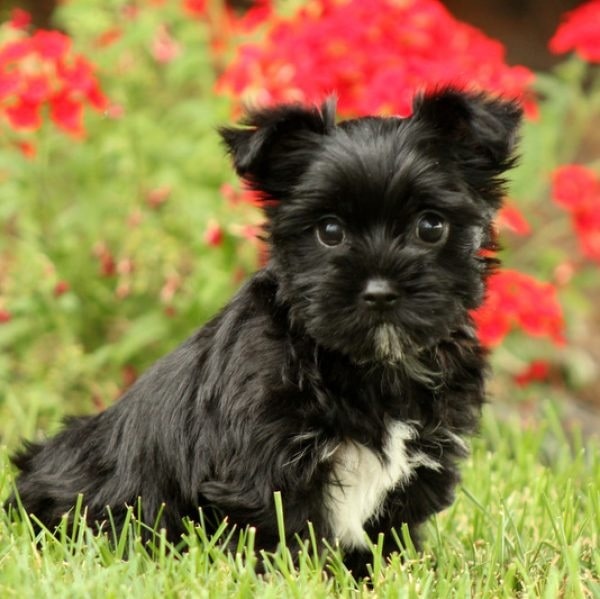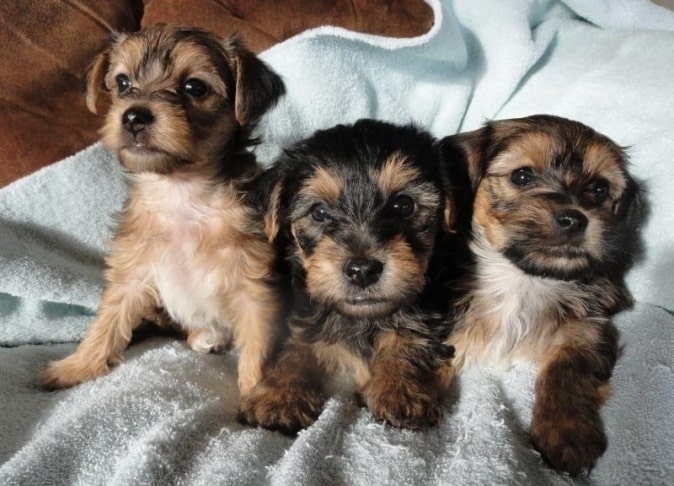Yorkie Bichon Dog Breed Information
| Country of Origin | United States |
| Nicknames and Other Names | Yo-Chon, Borkie, Yorkshire Frise, Yorkie Bichon |
| Scientific Name | Canis Lupus Familiaris |
| Breed Type | Crossbreed |
| Group | Non-Sporting, Toy |
| Bred For | Family Companion |
| Size | Small-Sized |
| Recognized By | ACHC, DRA, IDCR, DDKC, DBR |
| Life Span | 10-12 Years |
| Ideal Weight | 6-8 Pounds (male and female) |
| Ideal Height | 9-12 Inches (male and female) |
| Fur Type | Dense |
| Common Colors | Black, Dark Brown, Blonde, Gray,White, Golden |
| Markings | None |
| Availability | Moderately Available |
| Achievements | None |
| Suitable for Apartments | No |
| Used in World War | Yes |
| Most Similar To | Yorkshore terrier Bichon Frise |
The Yorkie Bichon is also known as Yo-Chon, Yorkie-Bichon, Yorkshire Frise is a hybrid breed. It is created by crossing a Yorkshire Terrier and a Bichon Frise. They are a small-sized, super cute dog that makes great as a family pet. It is lively, friendly, and fun little toy that you can call it your own.
The Yorkie Bichon is alike the Bichon Frise and Yorkshire Terrier that it was bred from. They have a compact, well-proportioned body with a round head. The muzzle is blunt with a dark nose. Their eyes are round, dark and the ears are either standing upright or hanging down. The coat also may come either long and silky like Yorkshire Terrier or soft, dense, curly like Bichon Frise.
Origin and History
The Yorkie Bichon is bred in the United States and has been around from past few decades. It is bred by crossing Bichon Frise and Yorkshire Terrier. The Bichon Frise is believed to be originated in France.
It is a medium-sized dog that can also swim in the water and the sailors would take them throughout Europe. It was famous as a lap dog with Italian nobilities.
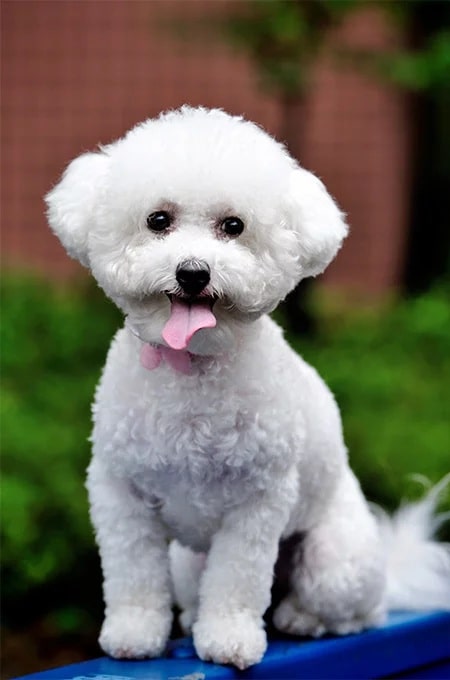
Image Source: dogtime
The Yorkshire Terrier is originated in the county of Yorkshire, England for the purpose to catch rats and vermin in clothing mills. It was owned by working class people. It was brought to the United State in the 19th century and it became popular there. Yorkshire Terrier was recognized by the American Kennel Club in 1885.
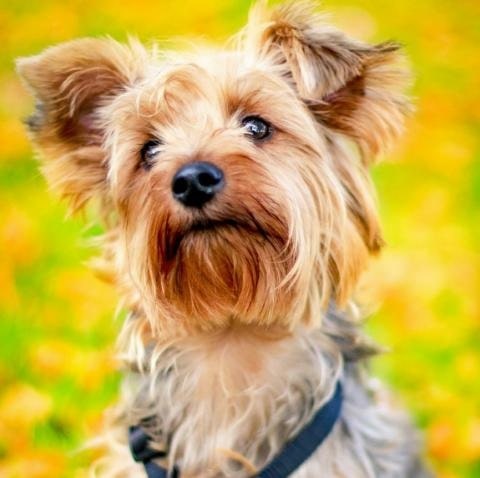
Image Source: Central Texas Veterinary Specialty Hospital
The Yorkie Bichon is not recognized by the American Kennel Club. However, it is recognized by other organization like the American Canine Hybrid Club and the Designer Breed Registry.
Is Yorkie Bichon Child-Friendly?
Yorkie Bichon is a wonderful companion for children as they are very friendly and get along with them very well. They enjoy being with them and loves to be part of the games they are playing. They are very tolerant of noise that children make and are happy seeing them play. Although they are friendly, the interaction of both your dog and the kids should be always supervised.
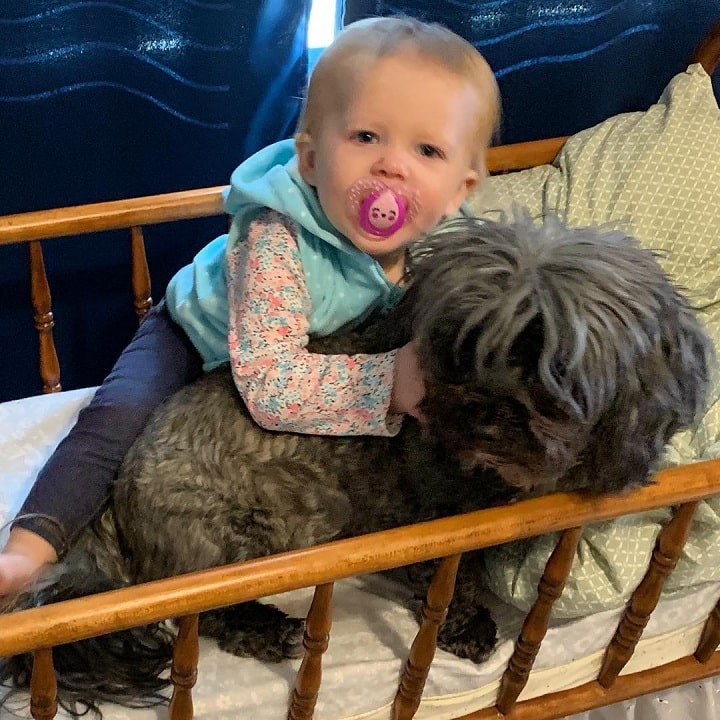
Image Source: Instagram-@karynlyn720
Temperament, Behavior, and Personality
Temperament: The temperament of the Yorkie Bichon is lively but independent. It has a combination of traits from its parent breeds. They love to be the center of attention and also need some time alone by themselves.
Behavior: The Yorkie Bichon has a high pitched bark that has both good and bad side. The good side is that it will warn about any strange activity with its bark, making it a great watchdog. And the bad side is, this barking habit of it will disturb your neighbor around. Therefore, they need to be taught to stop when being commanded.
Personality: The Yorkie Bichon is a small dog with a big personality. It is active. friendly, and gentle little dog. They make a great family companion due to their friendly behavior. They are loving of their people and also they are willing to defend them if any harms come near them.
Trainability
Training Yorkie Bichon is a moderately easy task to do if the training is started from an early age. They are an independent dog and can be stubborn sometimes. Therefore it is necessary to establish a firm and consistent leadership upon them. Use positive methods of training by providing them with treats and vocal praises. It will motivate them and keep them focused on the training.
Facts
- During winter, the Yorkie Bichon is known to eat less and might only eat at night.
- The litter from the same parents can have different appearance where one can be more like Yorkshire Terrier and another more like a Bichon Frise.
Health Issues
| General Health | Healthy |
| Common Health Issues | Hypoglycemia, Hypothyroidism, Patellar Luxation, Bladder Infection |
| Hypoallergenic | No |
| Vaccination Required | Canine Coronavirus, Rabies, Canine Parvovirus, Leptospirosis, Canine Distemper, Canine Parainfluenza, Kennel Cough |
| Shedding | Moderate Shedder |
| Drooling | Low Drooler |
| Grooming | Average Grooming Required |
| Weight Gain Potential | Average |
| Separation Anxiety | High Chance |
| Allergies | None |
| Diets and Supplements | Protein: 18% Fat: 5% Glucosamine Probiotics Antioxidants Digestive Enzymes |
The average life span of the Yorkie Bichon is 10-12 years. Since they are a mixed breed, it is possible for them to inherit their parent’s common diseases which are as follows:
- Bladder Infection: It is caused by many factors like excessive intake of protein, magnesium, and phosphorus in their diet. A bladder infection can also be seen if there is a long period of time between urination. It can be prevented by giving a proper diet n proper amount. Do not careless and always take your dog out to pee on routine.
- Patellar Luxation: It is a common problem in small dogs. It is caused when there is a dislocation of joints on the knee. It does not affect the life of your dog in a serious way. When your dog stretches its leg and let it relax, it will get back into position in no time.
Colors
The Yorkie Bichon comes in the combination of the following colors:
- White
- Cream
- Golden
- Gray
- Blue
- Brown
- Black
Puppies

Image Source: Greenfield Puppies 
Image Source: 101 dog beeds
Height and Size: The average height of the Yorkie Bichon is between 9-12 inches and the average weight is between 6-8 lbs.
Cost: The average cost of the Yorkie Bichon is between $600-$800 USD.
Similar Dog Breeds to Yorkie Bichon
- Bichon Frise
- Yorkshire Terrier
- Maltese
- Silky Terrier
Visit Doglime for more information about dog breeds history, puppies, training, and mix.
Tags
